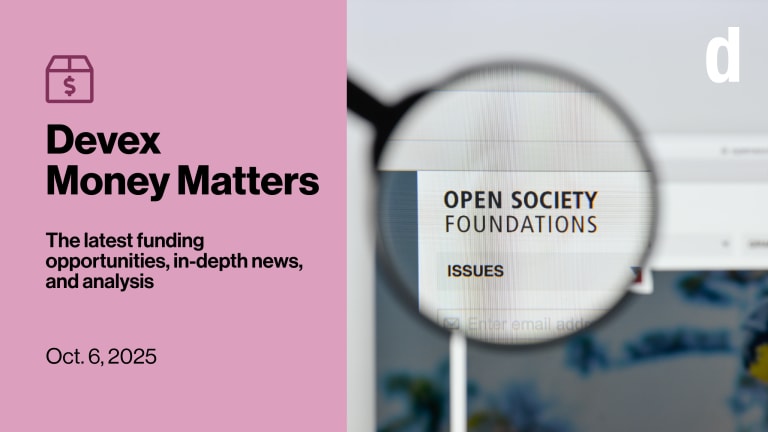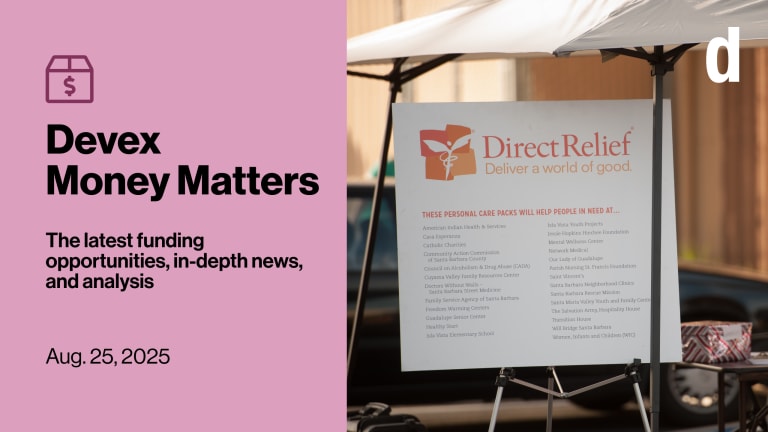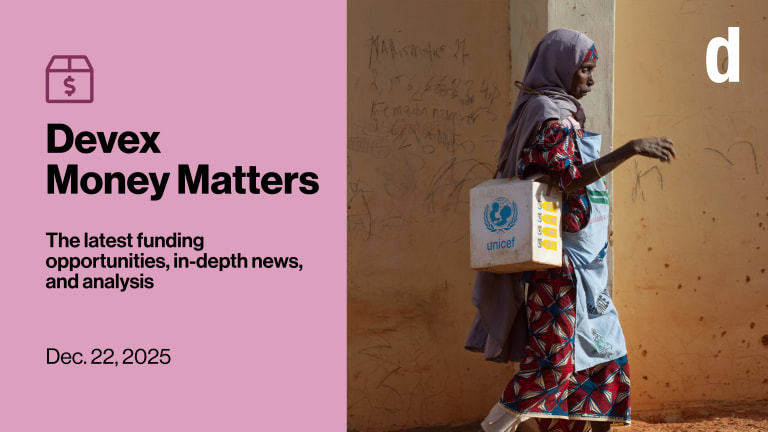There is a lot of money floating around in the world of global development. Billions of dollars in fact. And much of it is going to NGOs.
We take a look at the top INGOs in both the United States and United Kingdom to see where they get their money and how their fortunes had fared over the past five years. We found two quite different stories.
My colleague Miguel Antonio Tamonan did a deep dive into the numbers and they revealed an intriguing insight: the 50 largest NGOs in the U.S. had a revenue of more than $23 billion a year between them, and the majority of these entities have actually seen their incomes grow fast over the last half-decade.
Printing articles to share with others is a breach of our terms and conditions and copyright policy. Please use the sharing options on the left side of the article. Devex Pro members may share up to 10 articles per month using the Pro share tool ( ).








